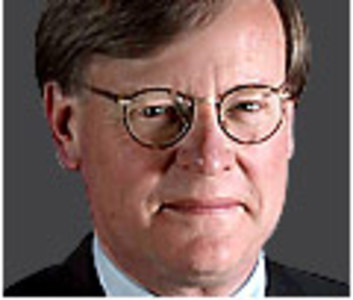 Elections are journeys into the unknown. They produce a result based on personalities and promises of today, but whoever wins will face unknown challenges and decisions.
Elections are journeys into the unknown. They produce a result based on personalities and promises of today, but whoever wins will face unknown challenges and decisions.
There are challenges no one can predict: natural disasters, terrorist attacks, recessions. Then there are, as former U.S. defence secretary Donald Rumsfeld once quipped, “known unknowns.” In Canada, one “known unknown” won’t figure at all in the election, but it could easily be the dominating challenge for the next prime minister: the return of Quebec separatism.
In Canada, one “known unknown” won’t figure at all in the election, but it could easily be the dominating challenge for the next prime minister: the return of Quebec separatism.
Ever since the demise of the Meech Lake accord and the creation of the Bloc Québécois, that party has been the preferred one in federal elections for the largest number of francophones in Quebec. What was supposed to be temporary – an expression of discontent after Meech Lake – has become permanent.
Election after election, Quebec commentators explain this or that ephemeral development to account for the Bloc’s enduring strength. All this will pass, we’re told. But it never passes, so the disengagement from federal affairs, or rather the apparent preference of francophone Quebeckers only to demand but never to participate, has become a well-entrenched norm.
As long as a federalist Liberal Party governed in Quebec City, the Bloc could be considered more of a nuisance for national unity than a threat. But the unduly long stay of the provincial Liberals is drawing to a close.
Premier Jean Charest is extremely unpopular, as is his party. They’ve been in office for three mandates, the last secured in December of 2008. They have maybe two more years to go before the next vote in which, barring a remarkable turn of events, voters will usher in the Parti Québécois.
Then the PQ-Bloc combination will dominate Quebec politics, provincially and federally. Facing them will be disorganized federalist forces in Quebec, very few of whom will have any links to the rest of Canada, courtesy of Quebeckers’ long disengagement from involvement in national affairs and the growing lack of interest in the “Quebec issue” outside the province.
The next federal government will have only a handful of Quebec members. The dynamics of this “known unknown” will be a government dominated by the “rest of Canada,” likely led by Stephen Harper (who’s not popular in Quebec) facing a PQ-led province and its Bloc ally in Ottawa.
Article 1 of the PQ constitution calls for an independent Quebec. Creating that status is the reason for the party’s existence, as it supposedly is for the Bloc. The existence of Article 1 doesn’t mean that a PQ government would rush into another referendum. It’s lost two of those, and doesn’t wish to lose another with polls still showing that a majority of Quebeckers don’t want to leave Canada – although a strange assumption has developed in the province whereby a No vote is construed as a mere way station en route to another referendum, whereas a Yes vote would be the end of the road.
Rather than hold an early referendum, the PQ-Bloc combination is much more likely to launch a kind of guerrilla war of a political variety: complaining and hectoring Ottawa, demanding more without ever being satisfied, of course, creating (or trying to create) a separate citizenship for Quebeckers, accentuating Quebec’s presence on the international stage, all the while hoping for mistakes from a federal government whose “rest of Canada” supporters will be bored or annoyed by the entire issue.
Who knows how Mr. Harper would respond? While in opposition in Ottawa and in exile in Calgary, he was an exponent of what was then called Plan B: setting clear guideless for any attempt by Quebec to break up the federation. He opposed special status for Quebec, supported the philosophy behind the Clarity Act and took firm positions amidst all the mushy rhetoric that surrounded Quebec’s secessionist aspirations.
As Prime Minister, however, he declared the Québécois to be a “nation” within Canada, forked over billions of dollars to the province as part of the “fiscal imbalance,” and played cutesy with the Action démocratique du Québec. The real Mr. Harper, if re-elected, will be asked to stand up after an election campaign during which these issues won’t be discussed.


























Laissez un commentaire Votre adresse courriel ne sera pas publiée.
Veuillez vous connecter afin de laisser un commentaire.
Aucun commentaire trouvé